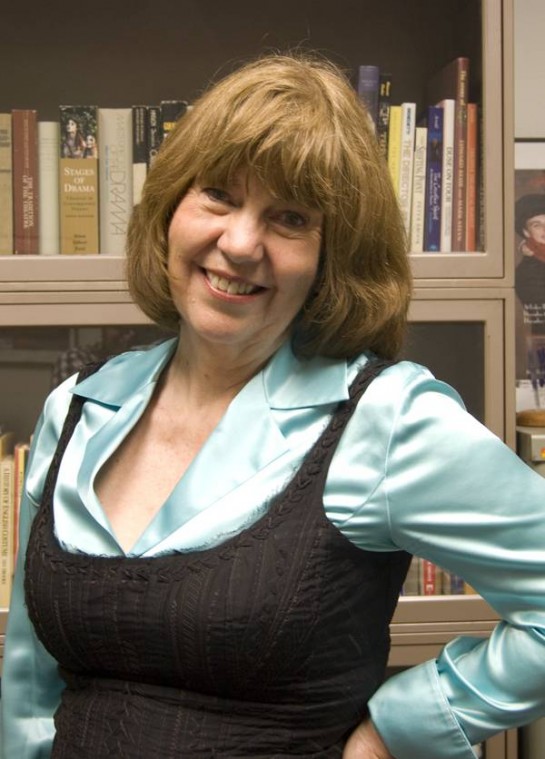Building a rapport with professors
Jane Cox, professor of muisc, belives students should become well aquanted with thier professors, especially withing thier own major. Cox says of the 250 students in her theater 106 class, only about 35 visit her egularly. Photo: Chris Potratz/Iowa State Daily
November 13, 2008
The students said it first: Developing positive relationships with professors will help to achieve future career-related goals.
Both Richard Doak, lecturer in journalism and mass communication, and Jane Cox, professor of music, agree, it’s not only what you know, but whom you know, that will matter when the time arrives to find a career.
“Theater is a small world,” Cox said. “People know people, who know people.”
It’s important to get to know your professors, she said, especially the professors in your major. Cox said roughly 35 of 250 of her Theater 106 students make regular visits to her office hours. Because it’s an introductory-level class, many non-theater majors are enrolled and visiting her isn’t required, she said.
It’s important to visit with professors, especially if there’s any confusion about a topic, Cox said. Although the majority of Theatre 106 students seem to wait until the last week of class to address concerns with course material, there are motivated students who seek personal assistance.
“I can go over notes with these students and make sure they understand the material,” Cox said. She said a students’ grades tend to improve by the end of the course if they show that they’re making an effort.
Doak, who teaches 27 students in courses two journalism classes, said few students visit during office hours.
“In a laboratory class it is easier to get to know the students through their work,” he said, as opposed to a large lecture class, in which students have virtually no interaction with the professor.
Both Doak and Cox stressed the importance of being involved in extra-curricular activities, particularly departmental activities in your major. Cox said relationships with professors and directors of clubs would most likely be where your letters of recommendation would come from.
As a director of the play “The Christmas Carol,” which opens Dec. 5, Cox has an opportunity to get to know her students on a more personal level.
“I think the students involved in clubs and activities tend to be more comfortable in my courses, because we see each other at practices and get to know each other better,” she said.
Doak said full-time professors tend to be on campus more often and are often leaders of clubs and student organizations.
Students who consider themselves to be shy shouldn’t hesitate to utilize the Internet as a form of communication, Doak said. He said all of the professors he knows are happy to be contacted by students via e-mail with questions, concerns or to just say “hi.”
Although the majority of her office hour visits are by students who are struggling in class, “it would be nice for a student who is doing fine in the class to stop by and chat,” Cox said with a smile.
To Doak, standout students tend to be students who complete their work, arrive on time, practice basic civility and “banter before class to better get to know one another.”
Both Doak and Cox said they would be willing to write letters of recommendation on behalf of students who execute this behavior.







